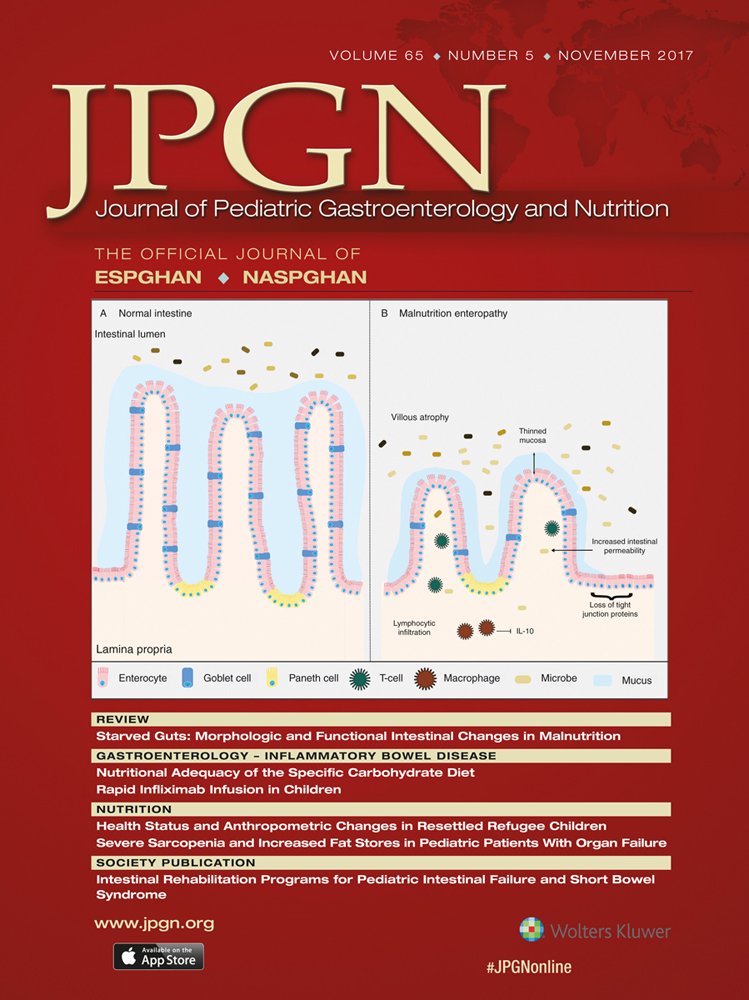F-calprotectin and Blood Markers Correlate to Quality of Life in Pediatric Inflammatory Bowel Disease
Supplemental digital content is available for this article. Direct URL citations appear in the printed text, and links to the digital files are provided in the HTML text of this article on the journal's Web site (www.jpgn.org).
www.clinicaltrials.gov registration number: NCT01860651.
This work was supported by the European Crohn's and Colitis Organization, Queen Louise's Hospital Foundation, Tryg Foundation, CALPRO A/S, Tillotts Pharma, Capital Region Denmark, Alice and Frimodts Foundation, Ulcerative colitis and Crohn's Danish Patient Society and Merck Sharp and Dome.
Dr Wewer is a member of the Advisory Board, MSD Denmark and Dr Paerregaard is a member of the Advisory Board, Nestle; Speaker fee (2015) Abbvie. The other authors report no conflicts of interest.
ABSTRACT
Objectives:
Our aim was to investigate predictors of health-related quality of life (HRQoL) with respect to changes in disease parameters over time in children with inflammatory bowel disease.
Methods:
This was a prospective longitudinal study examining the association between HRQoL (IMPACT III) and symptom scores (Pediatric Crohn Disease Activity Index, abbreviated Pediatric Ulcerative Colitis Activity Index), fecal calprotectin measures and blood analyses (C-reactive protein, erythrocyte sedimentation rate, orosomucoid, albumin, hemoglobin, and vitamin-D) in a cohort of 10- to 17-year-old patients with inflammatory bowel disease. Data were collected prospectively at 3-month intervals during a 2-year period. Associations were analyzed using linear mixed-effect models. Patients were divided into 2 groups, which received nonbiological oral treatment or biological parenteral treatment.
Results:
From 79 patients (39 Crohn disease/40 ulcerative colitis), representing a total of 43,132 days of observation, 572 IMPACT measurements were paired with variables. A decrease in the IMPACT III score was significantly associated with increased ulcerative colitis-symptom score in the biological group (P = 0.005), and a similar inverse tendency was found in the nonbiological group and for Crohn disease symptoms in both groups. We found in both treatment groups overall a significant (P < 0.05) inverse association between the IMPACT III and the levels of fecal calprotectin, erythrocyte sedimentation rate, and orosomucoid, whereas albumin, hemoglobin, and vitamin-D were directly significantly associated.
Conclusions:
The IMPACT score, already known to correlate with disease activity, has now been shown to be associated with disease markers in feces and blood. This emphasizes that objective markers of disease activity indirectly can predict the patient's HRQoL.




